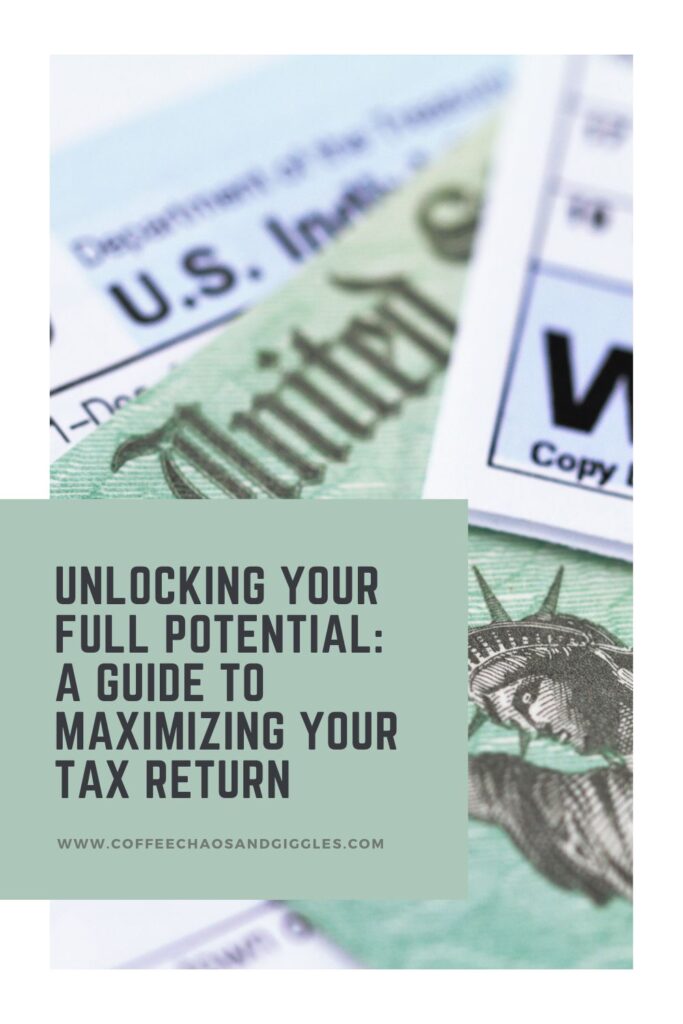Unlocking Your Full Potential: A Guide to Maximizing Your Tax Return
Tax season often brings a mixture of stress and anticipation for many individuals. However, with careful planning and strategic decisions, you can turn tax time into an opportunity to maximize your tax return. This blog post will provide you with practical tips and insights on how to make the most of your tax situation, ensuring that you keep more of your hard-earned money.

- Stay Informed and Organized:
Knowledge is power when it comes to taxes. Stay informed about changes in tax laws, deductions, and credits to ensure you’re taking advantage of every available opportunity. Keep all relevant documents, such as W-2s, 1099s, and receipts, organized throughout the year. Using tax software or hiring a professional can help streamline this process.
- Contribute to Retirement Accounts:
Contributions to retirement accounts, such as a 401(k) or IRA, can reduce your taxable income. Take advantage of employer-sponsored retirement plans and contribute the maximum allowable amount. Additionally, consider making contributions to a traditional IRA, which may offer tax benefits depending on your income level.
- Leverage Tax Credits:
Tax credits directly reduce your tax liability, so be sure to explore and take advantage of applicable credits. Some common credits include the Child Tax Credit, Earned Income Tax Credit, and Education Credits. Research eligibility criteria and claim these credits to maximize your refund.
- Deduct Business Expenses:
If you’re a small business owner or self-employed, make sure to deduct all eligible business expenses. This can include office supplies, mileage, home office expenses, and professional development costs. Keep detailed records and consult with a tax professional to ensure you’re maximizing your deductions within the bounds of tax regulations.
- Explore Itemized Deductions:
Consider itemizing your deductions instead of taking the standard deduction if you have significant qualifying expenses. This can include deductions for mortgage interest, medical expenses, charitable contributions, and state and local taxes. Evaluate which method provides the greatest benefit for your specific situation.
- Maximize Health Savings Accounts (HSAs) and Flexible Spending Accounts (FSAs):
Contributions to HSAs and FSAs are tax-deductible and can help you save on healthcare expenses. Maximize your contributions to these accounts, taking advantage of the tax benefits while securing funds for medical costs.
- Tax-Efficient Investing:
Be mindful of the tax implications of your investment choices. Consider tax-efficient investment strategies, such as holding onto investments for more than a year to qualify for lower long-term capital gains rates. Explore tax-advantaged investment accounts like Roth IRAs for tax-free withdrawals in retirement.

Maximizing your tax return requires proactive planning, staying informed, and making strategic financial decisions throughout the year. By taking advantage of available deductions, credits, and investment opportunities, you can ensure that your hard-earned money stays where it belongs – in your pocket. Consult with a tax professional for personalized advice based on your unique financial situation, and make the most of every opportunity to optimize your tax return.





